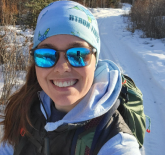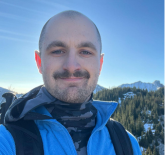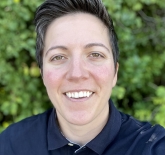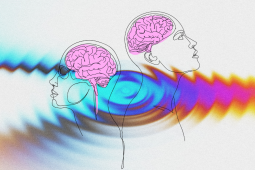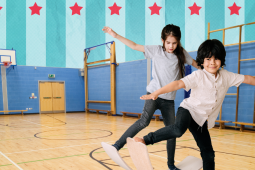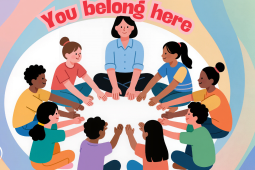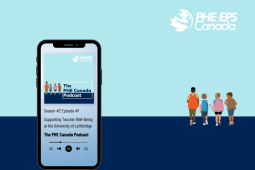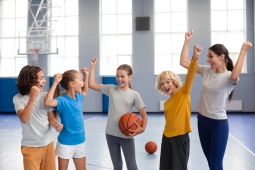A Conversation with Spirit North: Celebrating Indigenous Youth and Unleashing Potential in Sport, School, and Life
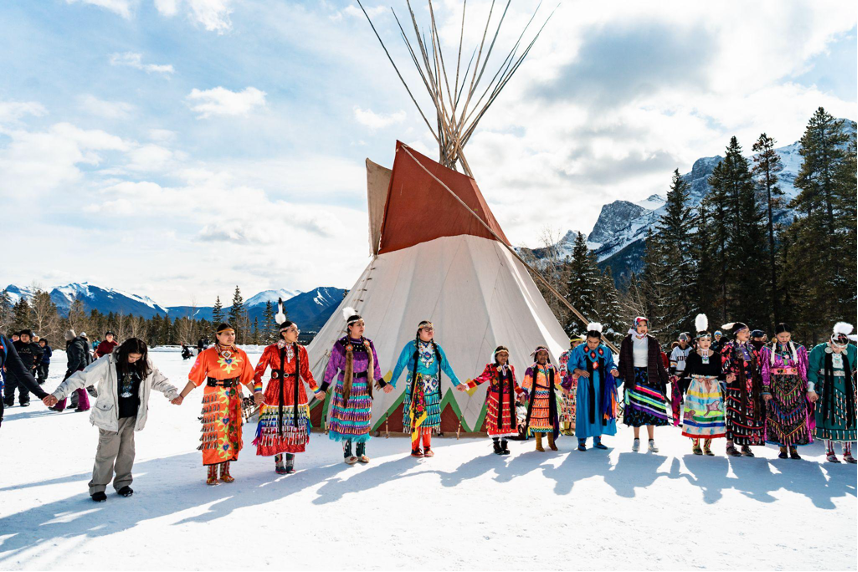
"... sport holds the power to change lives, transform communities, inspire individuals, heal and teach."
- Beckie Scott, Founder and CEO of Spirit North
To foster inclusive and effective learning environments, PHE Canada acknowledges that creating spaces where Indigenous students can thrive is crucial (Toulouse, 2021). It is also essential that both Indigenous and non-Indigenous students are taught to honor each individual and embrace diverse ways of knowing and understanding (Davis et al., 2023). Supporting young people with quality and culturally affirming approaches and learning will strengthen Indigenous and non-Indigenous students to forge new pathways together (Davis et al, 2023). Curriculum is a strongly interlinked process with reconciliation (Toulouse, 2016) and the highest-performing education systems combine equity with quality (OECD, 2012).
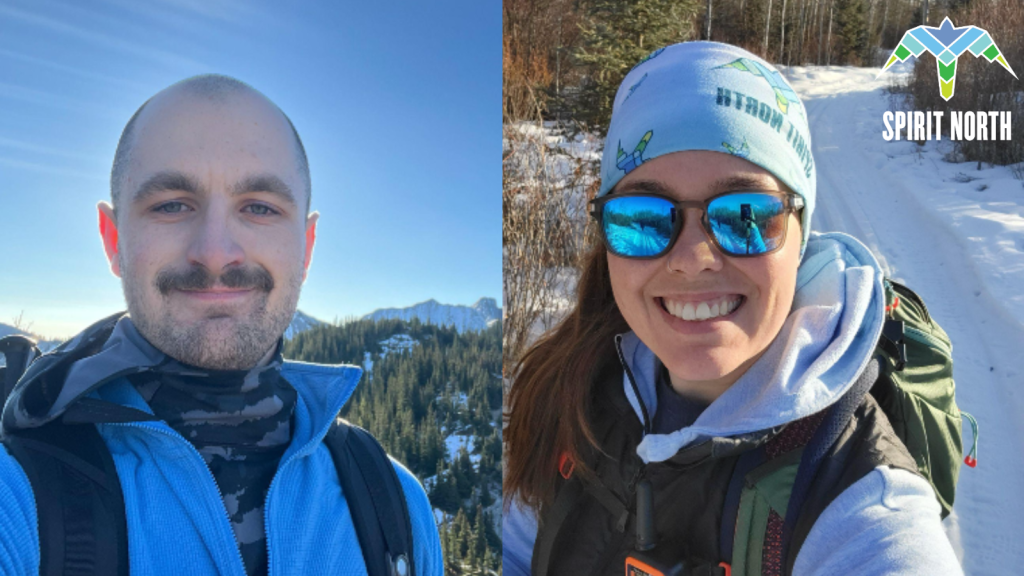
As part of PHE Canada’s journey towards Truth and Reconciliation, PHE Canada knows that it must tackle the history of oppression, exclusion, and racism within educational, well-being, and sport practices. This includes working with relevant stakeholders to address and rectify these issues. Similarly, a PHE educators' journey and commitment to truth and reconciliation is essential for affirming Indigenous ways of knowing, doing, and being in classrooms, school communities, and beyond. The PHE Journal had the pleasure of interviewing Jennifer MacPherson, Regional Director- Western Canada, and Taz Colbourne, Community Program Leader from an incredible organization, Spirit North, who are empowering Indigenous youth to become unstoppable in sport, school, and life.
“We know that having a meaningful connection to the land is pivotal, and regular access to sport and land-based activity has the ability to improve physical health, mental health, and community health. We've seen the transformative power of our programs – youth becoming leaders, achieving academic success and becoming vibrant, engaged members of their communities.”
- Spirit North
Q: What is Spirit North?
Spirit North is a national charitable organization founded by former Olympic gold and silver medalist cross-country ski racer, Beckie Scott in 2017. Spirit North uses land-based activities to improve the health and well-being of Indigenous youth, empowering them to become unstoppable in sport, school, and life.
Spirit North was founded to address health, wellness, and educational disparities faced by Indigenous children and youth due to the enduring impacts of settler colonialism, residential schools, and ongoing government policies of oppression and marginalization.
Spirit North’s efforts aim to restore balance by promoting equity in physical and mental health opportunities, as well as life skills that benefit both classrooms and communities. Collaborating closely with communities, we strive to create employment opportunities, foster positive role models, and encourage active, healthy lifestyles.
Spirit North hires local leaders within communities to enhance capacity and foster long-term program growth, providing strong role models for youth. Through sustained partnerships, youth develop new skills, gain confidence, and foster connections with each other and the land.
Q: How does Spirit North develop its programs? What types of activities and learning opportunities are provided?
“Sometimes you have to go outside, to find out what’s inside.”
- Spirit North
Spirit North’s programs are developed collaboratively with communities, provided at little to no cost, made possible by generous support from donors and sponsors nationwide, and offer a diverse range of season-appropriate sports and activities. In addition to regular program delivery, we strengthen local capacity through mentoring, training, coaching certification, professional development, equipment assistance, and trail network design. This empowers communities to sustain sports programs and their benefits long-term. We prioritize co-creation with communities in selecting activities, aiming to overcome immediate barriers, while fostering lasting solutions through community engagement, partnerships, and promoting healthy attitudes toward sports and activities. Spirit North offers over 40 activities, including winter sports like cross-country skiing and snowshoeing, and year-round options such as mountain biking, canoeing, lacrosse, and traditional activities.
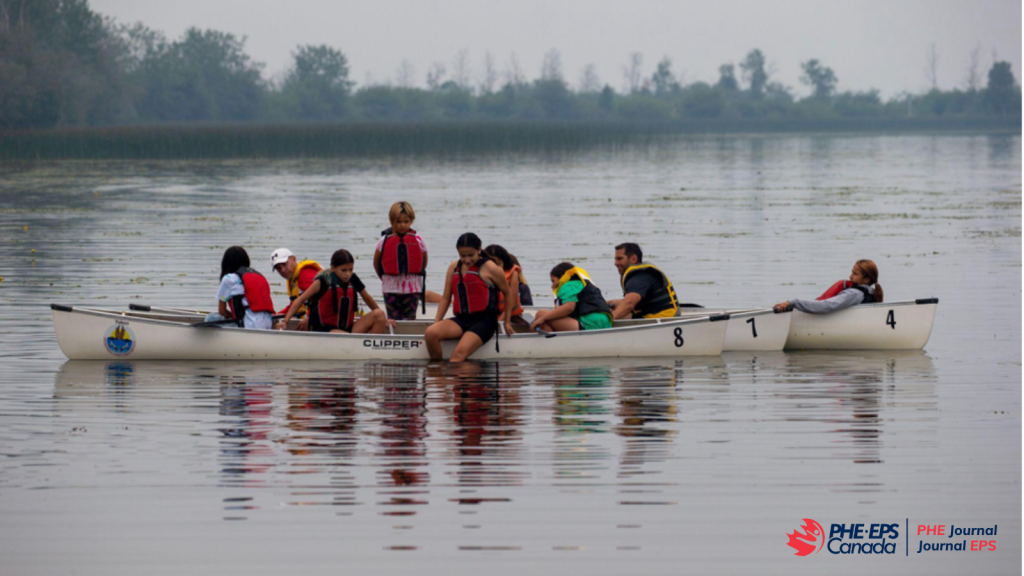
Q: What are some ways Spirit North addresses challenges and/or barriers to participation that Indigenous youth may experience?
"Working in partnership with schools and communities, our active, participation-based programs are designed to make Indigenous youth feel unstoppable …"
- Spirit North
Indigenous youth and communities often encounter barriers such as school size, remote locations, limited staff training, and transportation and equipment costs. Spirit North addresses these challenges by providing equipment and trained leaders directly to communities, and facilitating shared sports experiences. Additionally, Spirit North promotes community capacity building and the development of long-term programs and benefits by actively involving staff and youth leaders.
Q: The impact Spirit North has on the communities, schools, and Indigenous students it works with are invaluable. Can you share more about your journey and the community impact report?
"100% of respondents report that Spirit North programs made a difference in their child or student’s health and wellness."
- Spirit North
Starting from four communities and 300 youth in Northern Alberta, Spirit North now collaborates with over 100 Indigenous communities across Canada, engaging more than 16,000 youth annually in over 200 schools (8,018 youth in 41 communities in 2022). Our mission is to enhance health and wellness, foster essential life skills, and promote positive development within Indigenous children and their communities through a diverse range of land-based sports and activities. Sport offers physical, mental, and social connections that can inspire meaningful, lifelong change.
The impacts of our programs are incredible with:
- 97% of participants report increased joy.
- 80% of participants achieve or exceed 60 minutes of physical activity daily through Spirit North programs.
- 100% indicated a greater willingness to participate.
- 92% show increased attendance on Spirit North days.
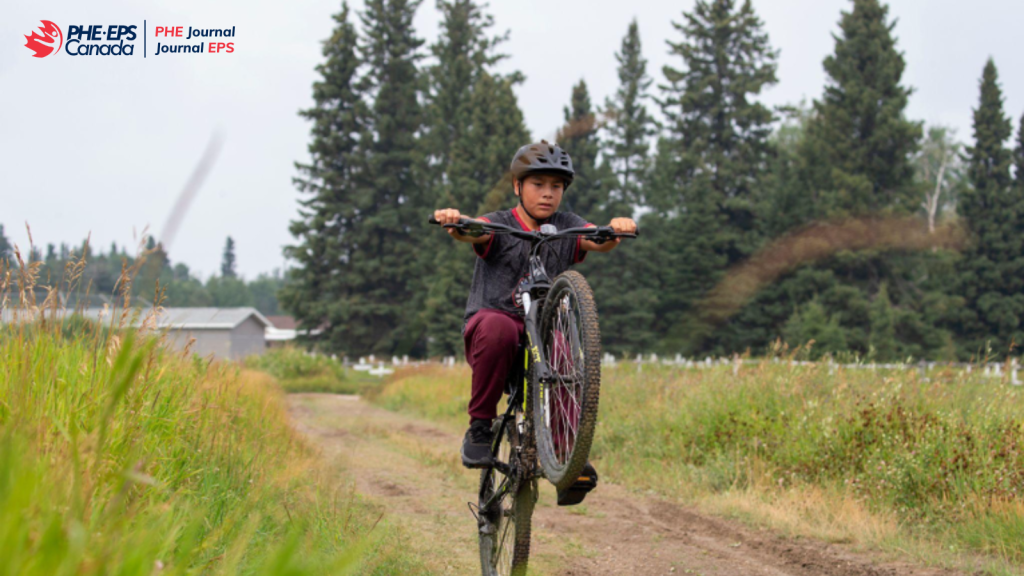
Q: How can PHE teachers and healthy school champions foster positive youth development and create lasting, meaningful impacts on families and communities?
- Practice humility – it’s okay to not know but take action on what you do not know.
- Take time to learn about Indigenous perspectives from community gatherings or events.
- Connect with Indigenous leaders outside of your school community to learn and better support Indigenous youth in your classrooms.
- Continue to learn about the TRC and the Calls to Action to support continued growth and development of Indigenous Youth in your school communities.
Q: How can folks get connected and/or involved with Spirit North to create opportunities for Indigenous youth in their community to thrive and feel important?
If schools or community organizations are interested in partnering or creating programs with Spirit North, they can reach out directly to: [email protected].
There are also opportunities to support us financially which helps to further break down barriers for Indigenous Youth. This can be done through: https://interland3.donorperfect.net/weblink/weblink.aspx?id=43&name=E351244QE
Check out the following additional resources:
- Spirit North Website
- Spirit North Activity Resources
- Spirit North Reconciliation
- Indigenous Games for Children
- Truth and Reconciliation Week 2024
- Truth and Reconciliation Commission of Canada: Calls to Action
- Canadian Physical and Health Education Competencies
As we move towards National Day for Truth and Reconciliation Week (September 23 - 27), we strongly urge the PHE and broader community each and every day to acknowledge and recognize “the poignant history and enduring spirit of First Nations, Inuit, and Métis peoples.” We must respect and learn from the original caretakers of this land and the significance of commitment to fostering understanding, reconciliation, decolonization, and unity.
PHE Canada recognizes its responsibility as a pan-Canadian association to provide a culturally affirming approach to reflect Indigenous-held knowledge and practices in the Canadian PHE Competencies. To develop and deliver quality PHE and physical activity (PA) programming, the Canadian Physical and Health Education Competencies recommends PHE educators, schools, and those in the process of reviewing existing curricula revamp and enhance existing PHE and PA programming by:
- Acknowledging and embedding Calls to Action; and,
- Including essential and foundational elements such as health and well-being; healthy schools; Indigenous world views and perspectives; inclusion, diversity, and equity; meaningful learning experiences; student voice; student at centre; and whole student/wholistic education, and more.
References:
Davis, M., Gleddie, D.L., Nylen, J., Leidl, R., Toulouse, P., Baker, K., & Gillies, L. (2023). Canadian physical and health education competencies. Ottawa: Physical and Health Education Canada.
OECD (2012), Equity and quality in education: Supporting disadvantaged students and schools, OECD Publishing. Retrieved from http://dx.doi.org/10.1787/9789264130852-en
Toulouse, P. (2016). What matters in Indigenous education: Implementing a vision committed to holism, diversity and engagement. In Measuring What Matters, People for Education. Toronto

